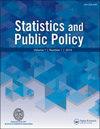增值和学生增长百分比模型:是什么导致了估计课堂效果的差异?
IF 1.5
Q2 SOCIAL SCIENCES, MATHEMATICAL METHODS
引用次数: 11
摘要
摘要本研究表明,当以先前成绩为条件的考试成绩的课堂分布出现偏差时(即,当教师为不成比例的高增长或低增长学生服务时),增值模型(VAM)和学生增长百分位(SGP)模型在估计教师有效性方面存在根本分歧。虽然这两个模型在概念上相似,但估计方法不同,这可能导致估计的教师效应存在相当大的差异。此外,通常将VAM和SGP模型分开三个十分位数甚至六个十分位数所需的条件偏度大小在实际数据中观察到的范围内。同一位老师在使用一种模式时可能显得软弱,而在使用另一种模式后可能显得坚强。通过模拟,我评估了可控条件下的关系。然后,我在北卡罗来纳州观察到的学生和教师数据中验证了这一结果。本文章由计算机程序翻译,如有差异,请以英文原文为准。
Value-Added and Student Growth Percentile Models: What Drives Differences in Estimated Classroom Effects?
ABSTRACT This study shows value-added models (VAM) and student growth percentile (SGP) models fundamentally disagree regarding estimated teacher effectiveness when the classroom distribution of test scores conditional on prior achievement is skewed (i.e., when a teacher serves a disproportionate number of high- or low-growth students). While conceptually similar, the two models differ in estimation method which can lead to sizable differences in estimated teacher effects. Moreover, the magnitude of conditional skewness needed to drive VAM and SGP models apart often by three and up to 6 deciles is within the ranges observed in actual data. The same teacher may appear weak using one model and strong with the other. Using a simulation, I evaluate the relationship under controllable conditions. I then verify that the results persist in observed student–teacher data from North Carolina.
求助全文
通过发布文献求助,成功后即可免费获取论文全文。
去求助
来源期刊

Statistics and Public Policy
SOCIAL SCIENCES, MATHEMATICAL METHODS-
CiteScore
3.20
自引率
6.20%
发文量
13
审稿时长
32 weeks
 求助内容:
求助内容: 应助结果提醒方式:
应助结果提醒方式:


